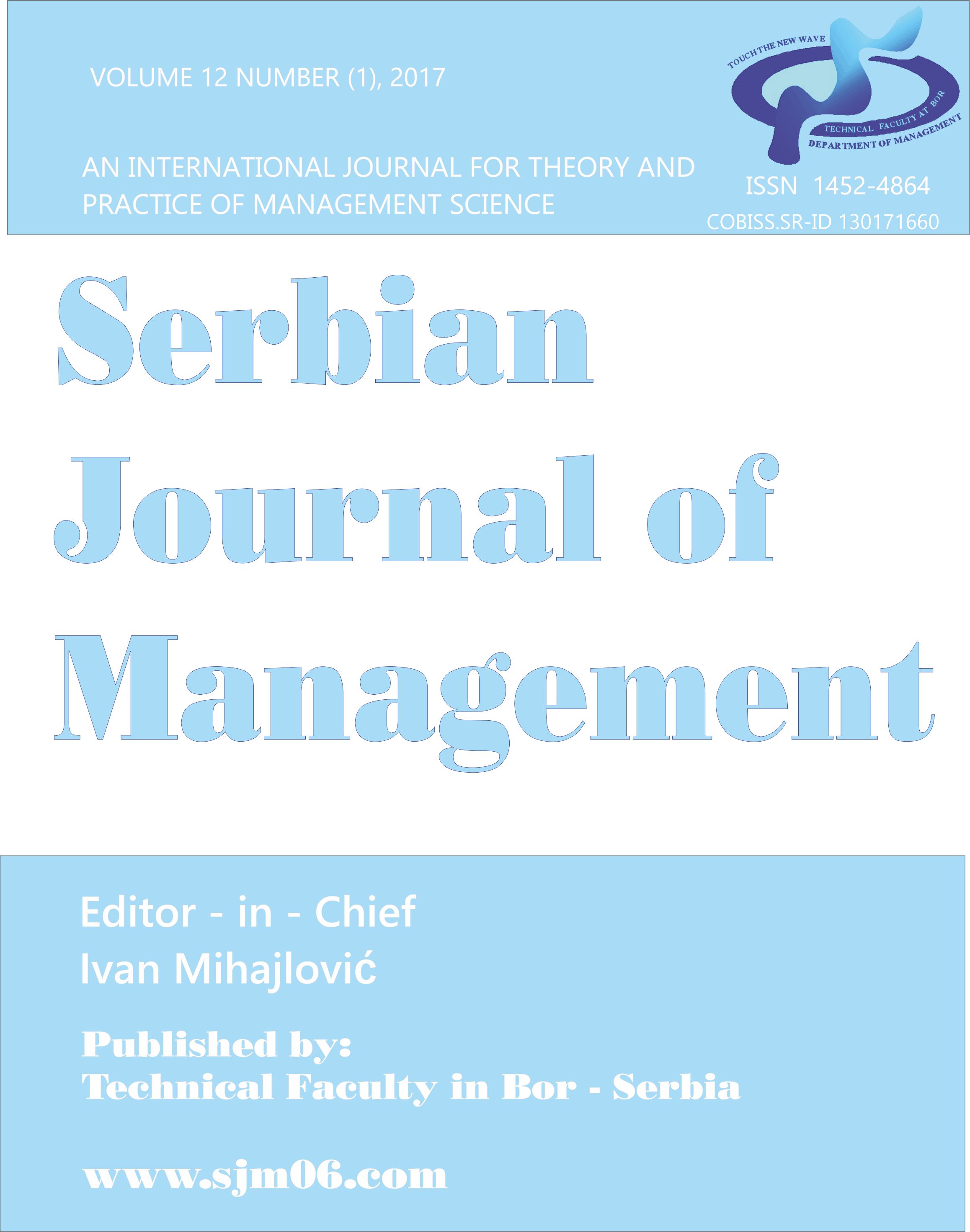Impact of corporate identity on reputation and employer’s brand
Abstract
The study focuses on the area of corporate identity and its correlation to reputation and employer’s brand. As competition in the labor market grows, more companies, in particular, are investing their efforts and resources in employer brand development that would be attractive to both current and potential employees. If the organization wants to be perceived as a desirable place for work and the employer as ideal, consistent corporate communication and harmonization of internal, employee-to-employee and external-employee-to-employee communications are required. The purpose of the paper is to examine the conditions under which it is possible to create a good reputation and an attractive employer brand through corporate identity and thus gain a competitive advantage in the labor market. Our interest is to determine what attributes need to be met to create an attractive brand for an employer with a good reputation.
References
Abratt, R., Kleyn, N. (2010). Corporate identity, corporate branding and corporate reputations. Journal of Marketing, 46 (7/8), 1049-1059.
Armstrong, M. (2015). Řízení lidských zdrojů. Praha: Grada Publishing, a.s.
Augustinova, N. (2020). Nedostatky internej komunikácie v princípoch spoločensky zodpovedného ponikania. In: Kvetanová, Z., Bezáková, Z., Madleňák, A. (eds.): Marketing identity. Trnava: FMK, Retreived from: https://fmk.sk/download/QuoVadisMarketing2020_2.pdf.
Balmer, J. (2008). Identity-based views of the corporation. European Journal of Marketing, 42 (9/10), 886-891.
Bednárik, J., Charvát Janechová, J. (2021). Implementing new trends not only in personnel communication with scare professions on the labor market in the context of technology interference. Ad Alta. Journal of Interdisciplinary Research, 11 (1), 112.
Bellou, V., Chaniotakis, I., Kehagias, I., Rigopoulou, I. (2013). Employer brand of choice: an employee perspective. Journal of Business Economics and Management, 16 (6), 1211.
Bieńkowska, A. et al.(2020). The role of employees in shaping brand performance. Forum Scientiae Oeconomia, 8 (2), 102.
Foster, C. et al. (2010). Exploring the relationship between corporate, internal and employer branding. Journal of Product & Brand Management, 19 (6), 401-409.
Ganta, V. CH. (2014). Motivation in the workplace to improve employee performance. International Journal of Engineering Technology, Management and Applied Science, 2 (6), 223-229.
Kaplan, S.W.R. (2017). Internal Marketing and Internal Branding in the 21st Century Organization. IUP Journal of Brand Management, 14 (2), 18.
Kissel, P., Büttgen, M. (2015). Using social media to communicate employer brand identity. The impact on corporate image and employer attractiveness. Journal of Brand Management, 22 (9), 772.
Koubek, J.(2015). Řízení lidských zdrojů: základy moderní personalistiky. Praha: Management Press.
Melewar, T. et al. (2006). The role of communication and visual identity in modern organizations. Corporate Communications: An International Journal, 11(2), 140.
Top zaměstnavatelé. (2021). Retreived from https://www.topzamestnavatele.cz/.
Verčič, A.T., Ćorić, D.S. (2018). The relationship between reputation, employer branding and corporate social responsibility. Public Relations Review, 4 (4), 446.
The Author wishes to submit the Work to SJM for publication. To enable SJM to publish the Work and to give effect to the parties’ intention set forth herein, they have agreed to cede the first right to publication and republication in the SJM Journal.
Cession
The Author hereby cedes to SJM, who accepts the cession, to the copyright in and to the paper.
The purpose of the cession is to enable SJM to publish the Work, as first publisher world-wide, and for republication in the SJM Journal, and to grant the right to others to publish the Work world-wide, for so long as such copyright subsists;
SJM shall be entitled to edit the work before publication, as it deems fit, subject to the Authors approval
The Author warrants to SJM that:
- the Author is the owner of the copyright in the Work, whether as author or as reassigned from the Author’s employee and that the Author is entitled to cede the copyright to SJM;
- the paper (or any of its part) is not submitted or accepted for publication in any other Journal;
- the Work is an original work created by the Author;
- the Author has not transferred, ceded, or assigned the copyright, or any part thereof, to any third party; or granted any third party a licence or other right to the copyright, which may affect or detract from the rights granted to SJM in terms of this agreement.
The Author hereby indemnifies the SJM as a body and its individual members, to the fullest extent permitted in law, against all or any claims which may arise consequent to the warranties set forth.
No monetary consideration shall be payable by SJM to the Author for the cession, but SJM shall clearly identify the Author as having produced the Work and ensure that due recognition is given to the Author in any publication of the Work.
Should SJM, in its sole discretion, elect not to publish the Work within 1 year after the date of this agreement, the cession shall lapse and be of no further effect. In such event the copyright shall revert to the Author and SJM shall not publish the Work, or any part thereof, without the Author’s prior written consent.

